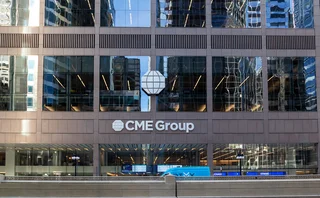
Reputational risk key for GCC executives
Middle East executives most worried about reputation risk, says survey
MIDDLE EAST - A survey of senior Gulf Co-operation Council (GCC) executives, conducted by ReputationInc, has revealed that 32% of respondents rank reputation has the most important business risk.
The responses, from 185 executives at chairman, chief executive and director level in the GCC area, demonstrate an increasing understanding of the importance of reputation in business. They recognise that most organisations are able to manage legal, operational and financial risks. The survey found that reputational risk is less easy to manage, and has the potential to be the most damaging.
The survey asked respondents to rank risk areas in terms of their potential effect on their organisation. Reputational risk gained 32% of the vote, ahead of operational risk (26%) and financial risk (21%).
Respondents mentioned that they make use of various risk management techniques, the most prevalent noted being contingency planning and the use of external consultants, but none measure or manage reputation.
The majority of the respondents also stated that they believed a favourable reputation enhanced business success, and half viewed a favourable reputation as an indicator of trustworthiness, which makes it easier for organisations to attract and retain stakeholders such as customers and employees. A majority of respondents said having a positive reputation leads to improvements on the bottom line, and enhances clients' willingness to approve premium pricing.
Only users who have a paid subscription or are part of a corporate subscription are able to print or copy content.
To access these options, along with all other subscription benefits, please contact info@risk.net or view our subscription options here: http://subscriptions.risk.net/subscribe
You are currently unable to print this content. Please contact info@risk.net to find out more.
You are currently unable to copy this content. Please contact info@risk.net to find out more.
Copyright Infopro Digital Limited. All rights reserved.
As outlined in our terms and conditions, https://www.infopro-digital.com/terms-and-conditions/subscriptions/ (point 2.4), printing is limited to a single copy.
If you would like to purchase additional rights please email info@risk.net
Copyright Infopro Digital Limited. All rights reserved.
You may share this content using our article tools. As outlined in our terms and conditions, https://www.infopro-digital.com/terms-and-conditions/subscriptions/ (clause 2.4), an Authorised User may only make one copy of the materials for their own personal use. You must also comply with the restrictions in clause 2.5.
If you would like to purchase additional rights please email info@risk.net
More on Risk management
Transforming stress-testing with AI
Harnessing the power of automated scenario generation, by Mathieu Tancrez
Basel stops short on wrong-way risk
New guidelines a step in right direction, but experts warn they won’t prevent another Archegos
On resilience risk, banks prepare to let the bad times roll
Lenders bolster first-line teams and upskill boards as compliance with new rules bites
Complex EU active account reporting could drive trades out of UK
Draft Emir rules might not force large volumes to move to EU, but will make compliance difficult
Strategies for navigating market volatility in the post-US election landscape
This article examines the key themes of a recent webinar, sponsored by S&P Global Market Intelligence, on market volatility following the US election, including inflation risks, commodities, geopolitical uncertainty, ESG considerations and the role of…
Risk.net’s top 10 investment risks for 2025
Fresh concerns this year include a trade war, a stock market crash and growing social discord
For banks, change risk is inevitable; managing it, optional
Regional bank survey shows steady growth of dedicated change risk functions and adoption of leading indicators
Clearing members ponder the purpose of CME’s mystery FCM
Some think licence will be used to boost crypto clearing capacity, but many questions remain







